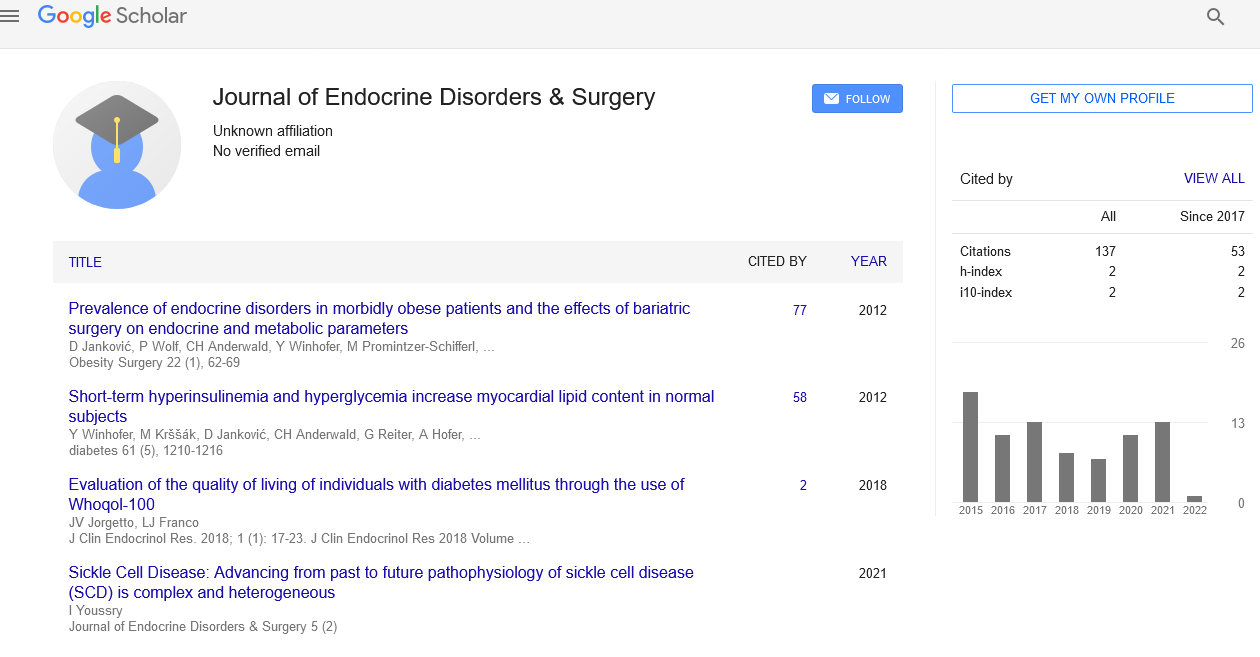
Sign up for email alert when new content gets added: Sign up
Abstract
Changes in ovarian hormones, their receptors, and neuroendocrine function as people age
Author(s): Edward Williamson*The menopause is the irreversible termination of a woman's fertility. The depletion of the ovarian follicle reserve was formerly assumed to be the only explanation for this drastic physiological shift. New evidence from women's studies and animal models leads us to rethink this notion. Multiple pacemakers, according to a growing body of data, play a role in the shift to irregular cycles, decreased fertility, and the timing of menopause. We will present evidence that supports the hypothesis that a dampening and desynchronization of precisely orchestrated neural signals causes miscommunication between the brain and the pituitary-ovarian axis, and that this constellation of hypothalamic-pituitary-ovarian events causes regular cyclicity to deteriorate and heralds menopausal transition. Because the ovarian follicle is not only the source of oocytes but also the primary source of estrogens, which are important for maintaining normal functions such as bone and mineral metabolism, memory and cognition, cardiovascular function, and the frequency of age-related neurodegenerative diseases such as Alzheimer's disease, the end of the reproductive life span has far-reaching consequences for women. In the face of a relatively stable age of menopause, the significant growth in the average human life expectancy has resulted in an increase in the number of women who would spend a greater part of their lives in a chronic hypoestrogenic condition. As a result, it's more crucial than ever to fully comprehend the systems that regulate the menopausal transition. Furthermore, gerontologists interested in brain ageing will benefit from a better understanding of the mechanisms governing female reproductive ageing, because if the central nervous system is a key pacemaker of reproductive senescence, we may gain a better understanding of the fundamental process of brain ageing. Furthermore, because the female reproductive system undergoes such significant changes early in ageing, we anticipate that this system will allow us to answer crucial questions about the biology of ageing without the confusing pathological alterations that so often sabotage gerontological research.
Full-Text | PDF




